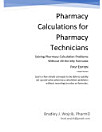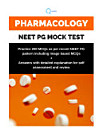Challenges and Elucidation of Drug Solubility
About this ebook
This comprehensive guide delves into the underlying causes of poor solubility, such as the increasing hydrophobicity and low water-solubility of lead compounds and marketed drugs. The book then systematically explores a range of solubilization approaches, including salt formation, particle size reduction, solid dispersions, and the use of drug nanoparticles. Each method is thoroughly examined, with detailed discussions on the theoretical basis, practical implementation, and the advantages and limitations of each technique.
By delving into the fundamental principles and the latest advancements in solubility enhancement, this book offers a valuable resource for pharmaceutical scientists, researchers, and industry professionals seeking to overcome the solubility hurdle and drive the development of more effective and patient-centric drug products.
About the author
Dr Monika Bhairam was awarded her PhD from Chhattisgarh Swami Vivekananda Technical University, India. She secured a gold medal in MPharm. Her specific area of research is pharmaceutical sciences.
Dr Sanjib Bahadur completed his PhD from Chhattisgarh Swami Vivekananda Technical University, India. His research interests are formulation and development, NDDS and CRDDS and has more than 16 years of Teaching and Research Experience.
Dr Shekhar Verma has a doctorate degree from University Teaching Department, Guru Ghasidas Central University, Bilaspur
India. Presently he is working as Professor. He is a Task Force Member of the planning commission of Chhattisgarh State, India and
cultural coordinator for the Association of Indian Universities (AIU), New Delhi.






